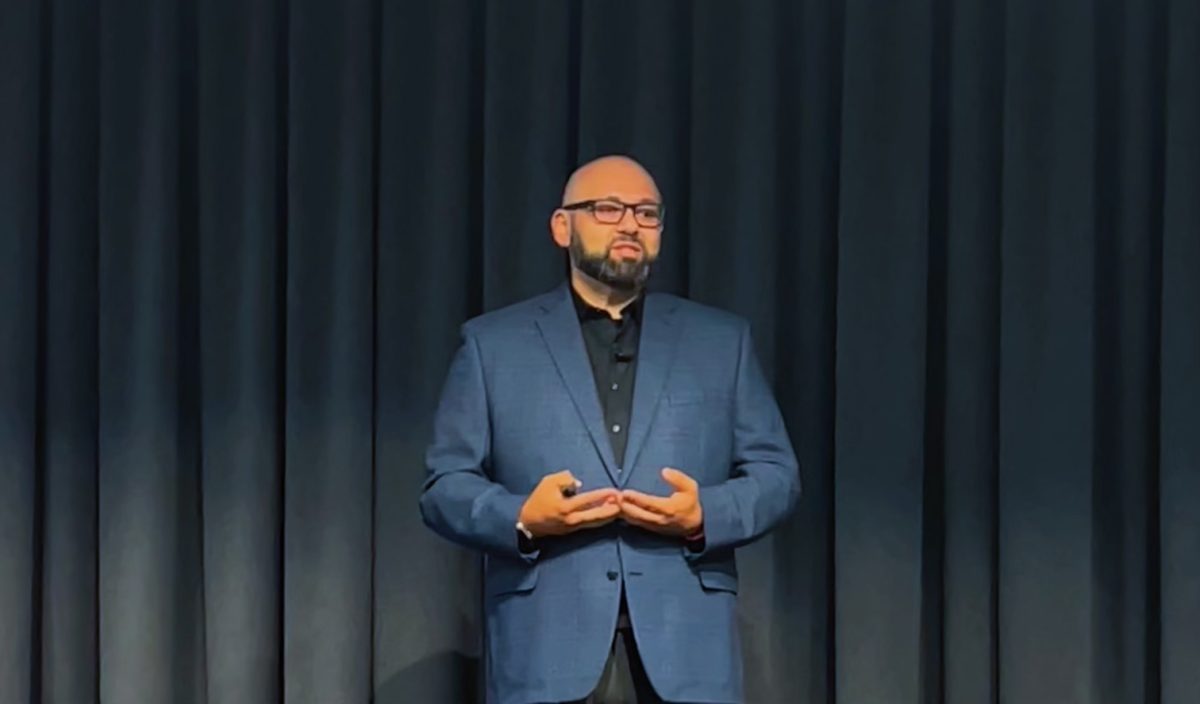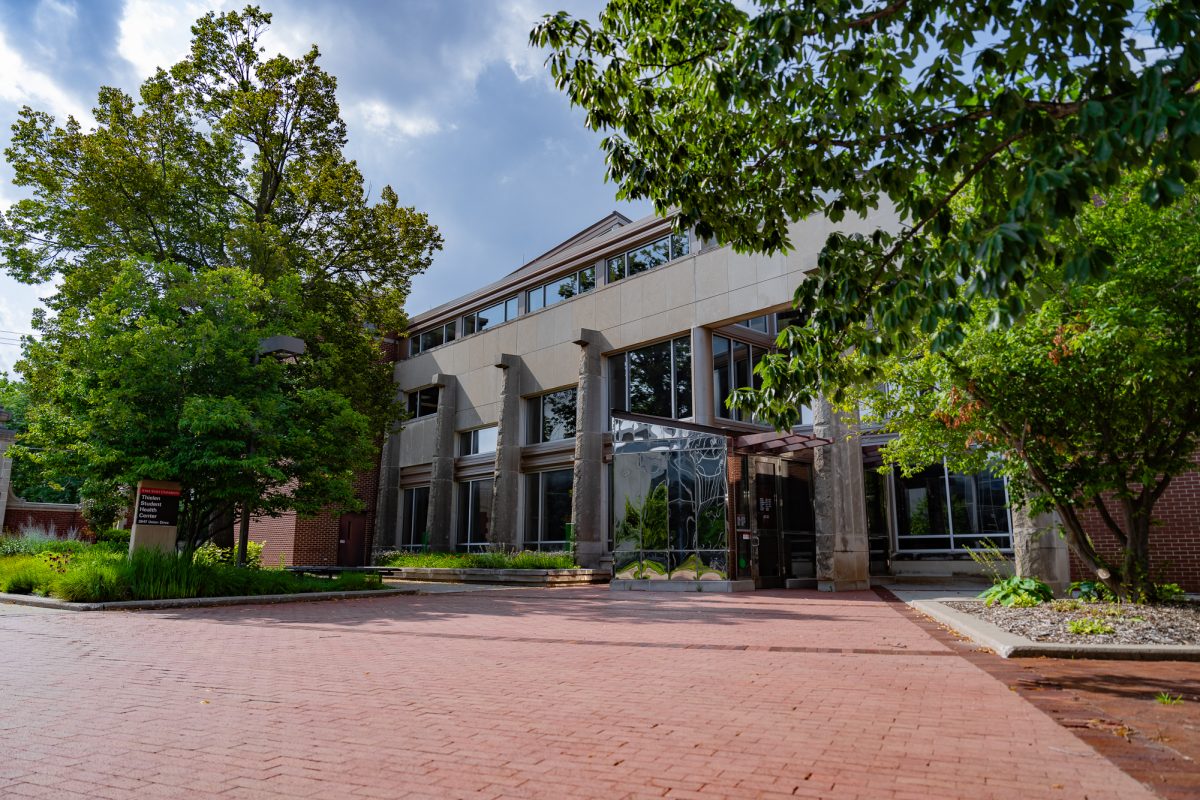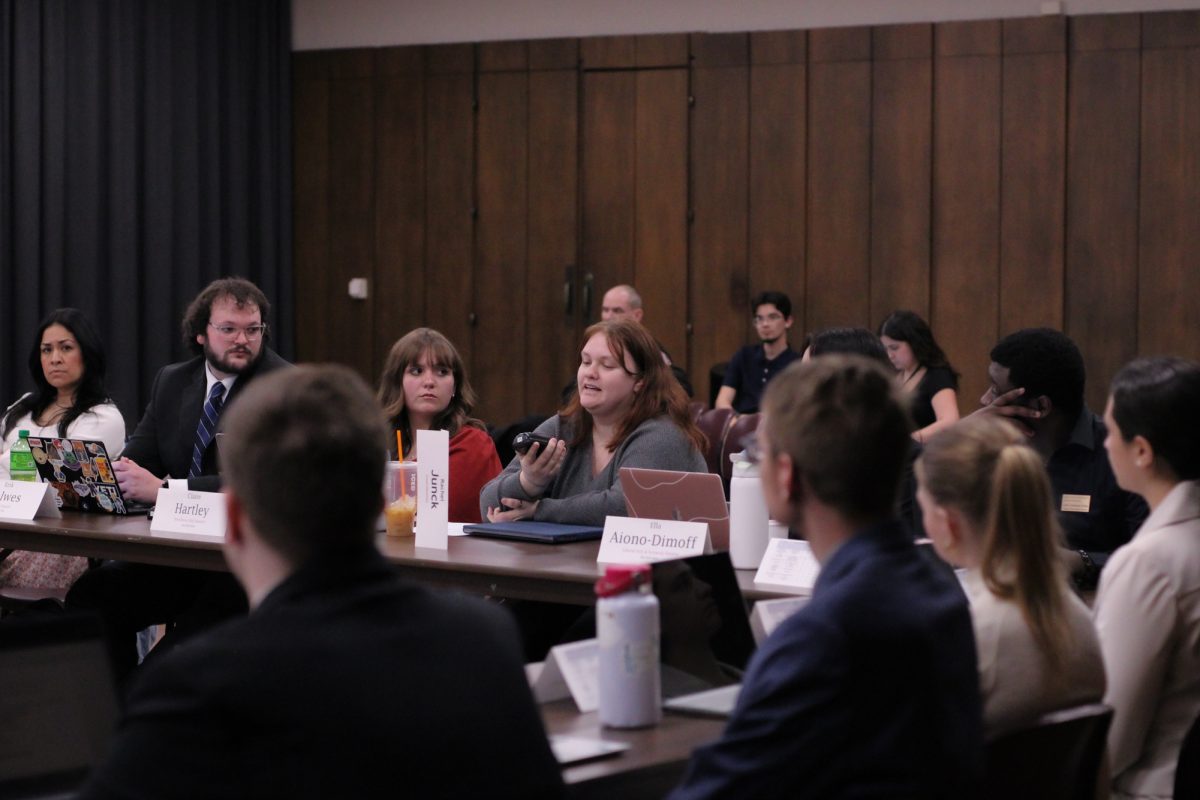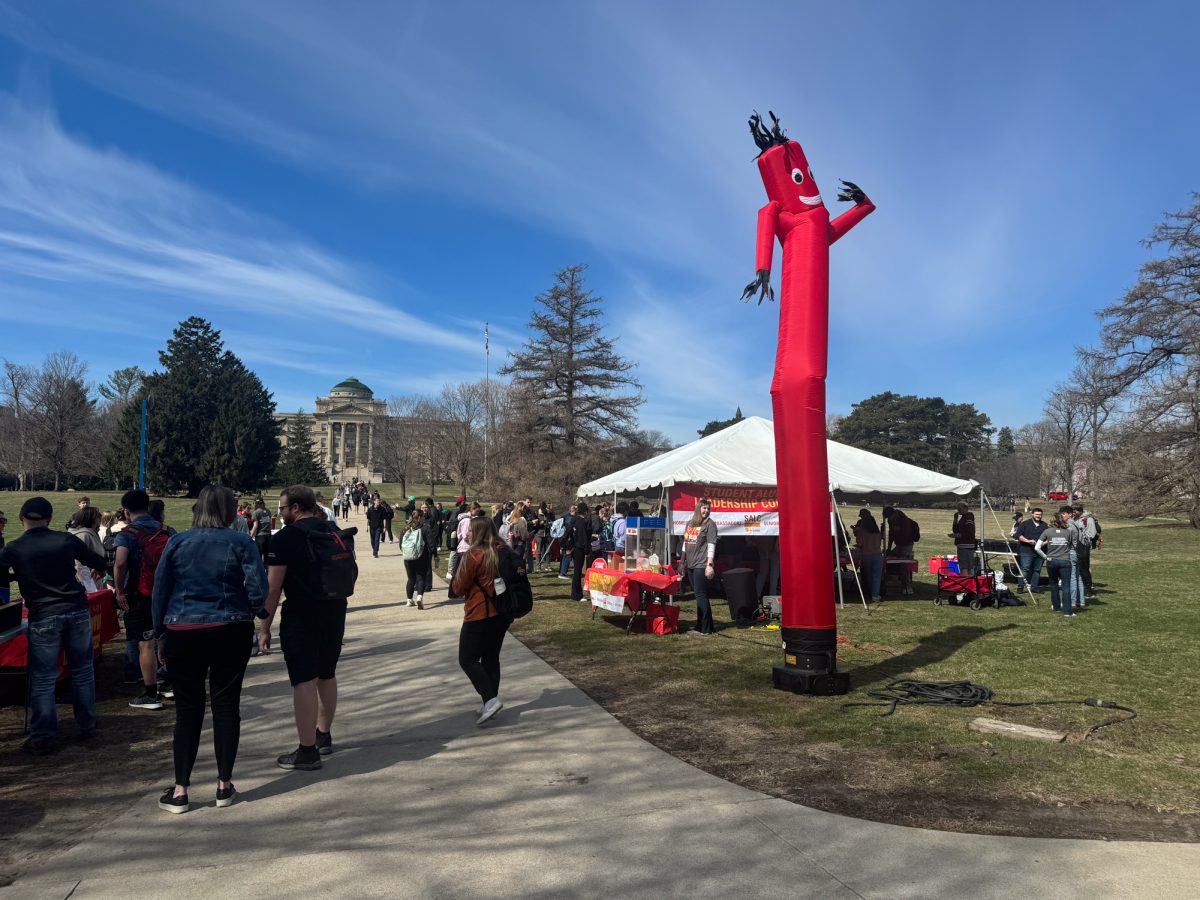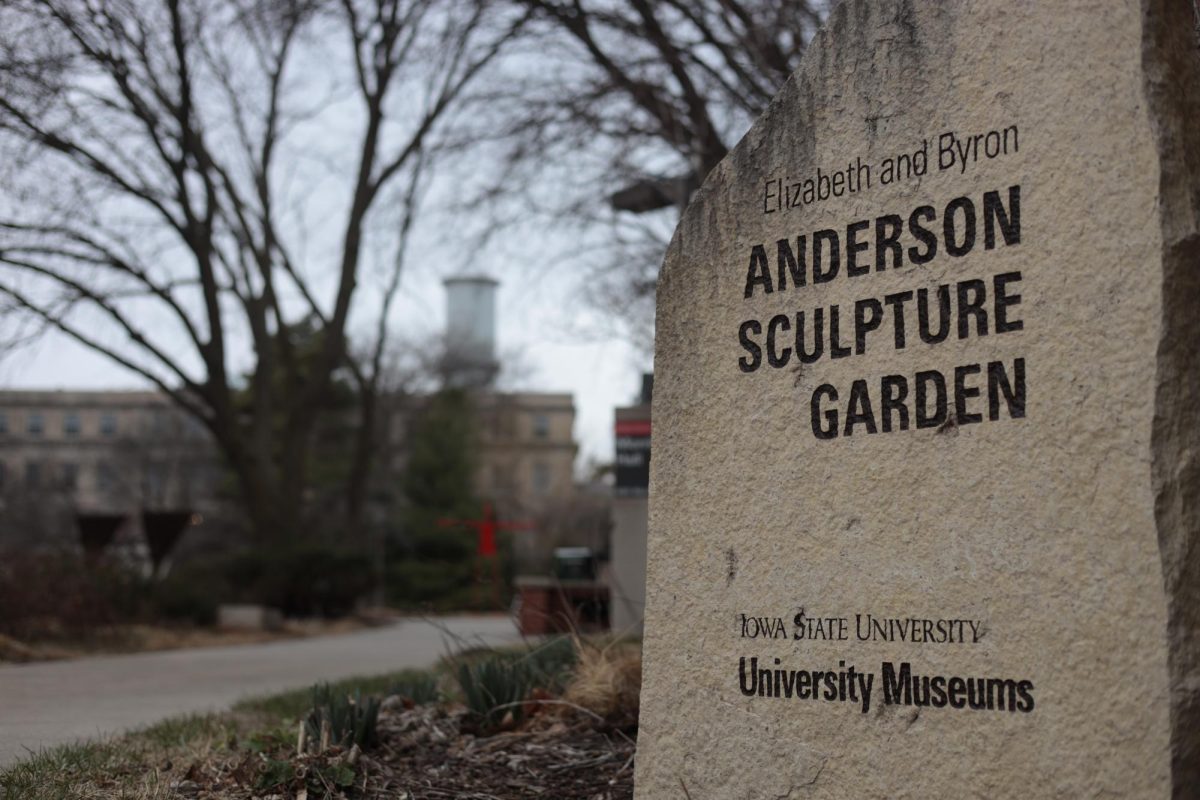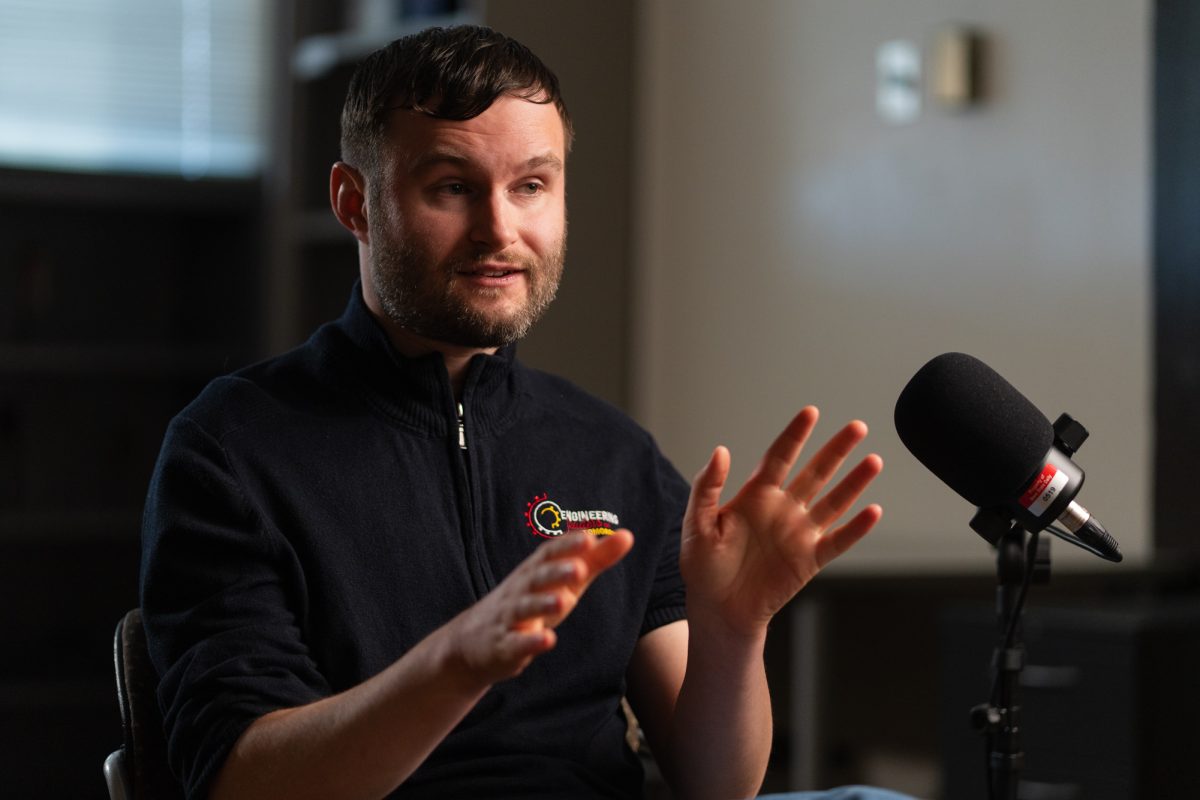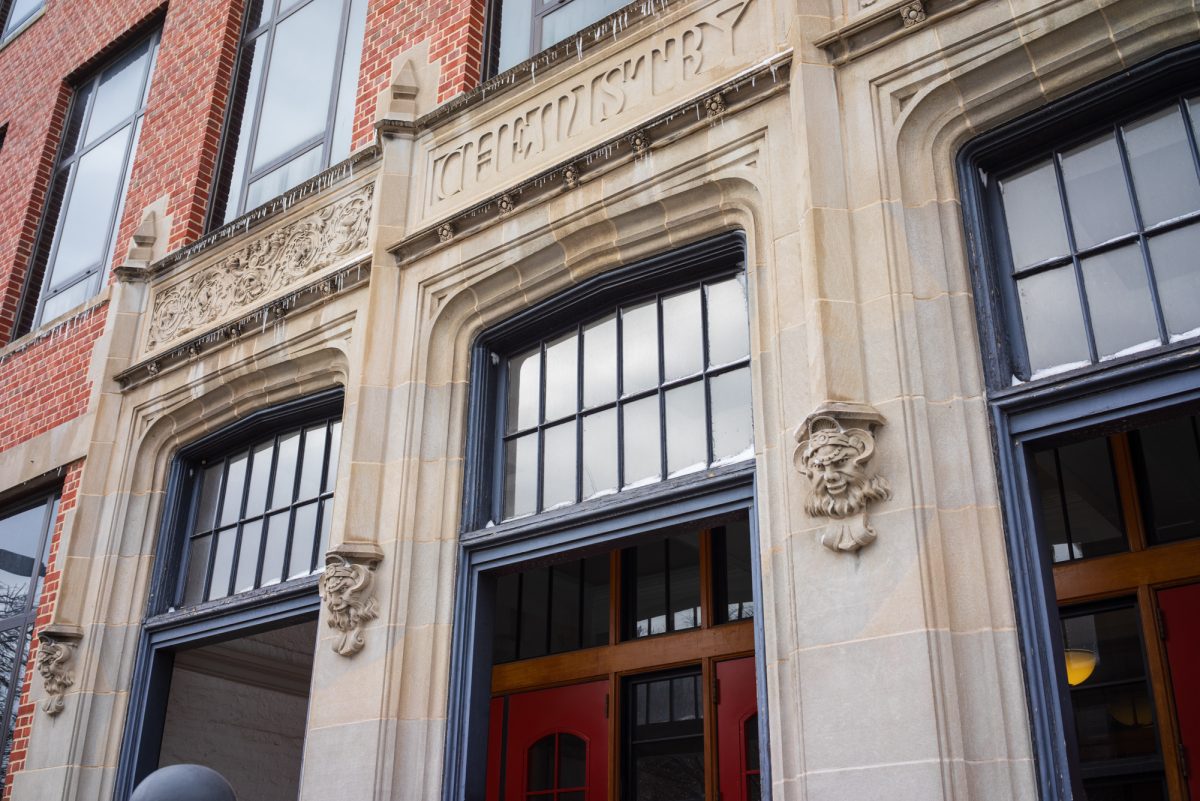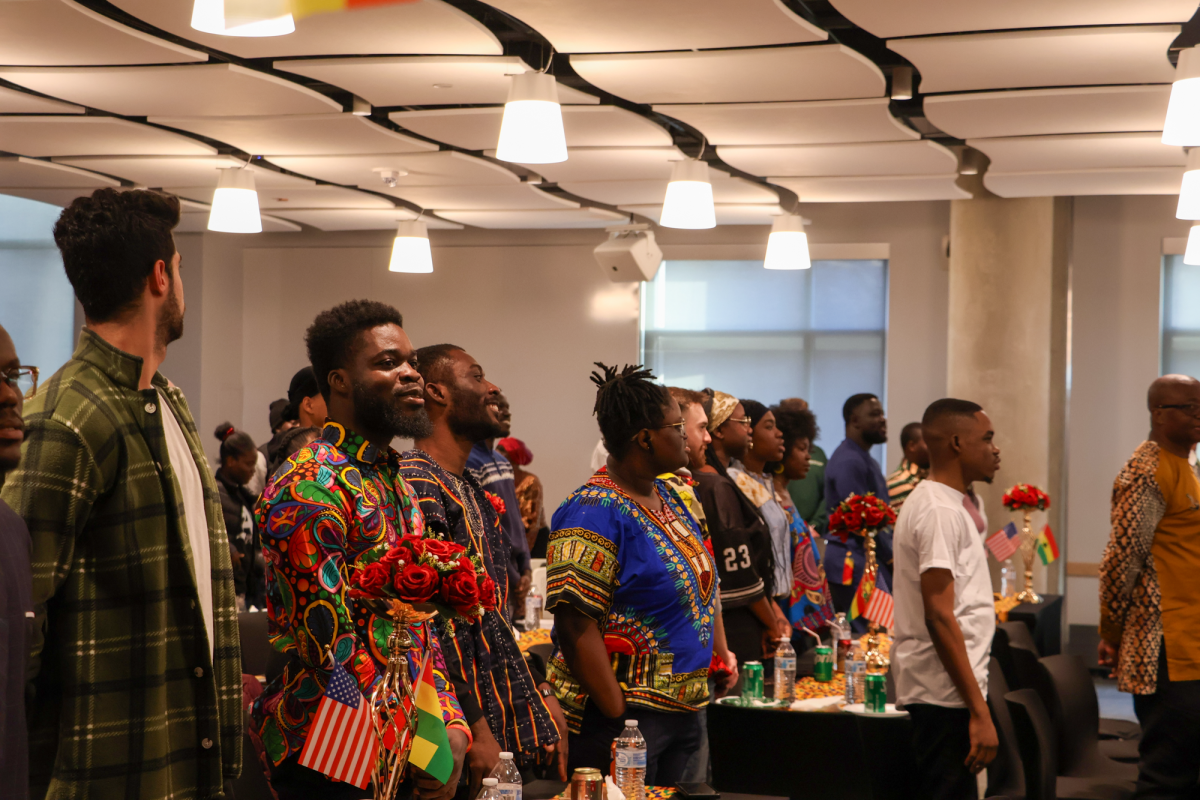Carlos Quezada shared his story of how he overcame adversity and worked consistently to get to where he is today, not only at the lecture but also in his book, “The Immigrant Survival Guide to Silicon Valley.”
Quezada was born and raised in Mexico and first came to the U.S. at the age of 2. During his adolescence, Quezada moved back and forth between the U.S. and Mexico.
“There’s probably a lot of assumptions,” Quezada said. “Some of the assumptions might be that I went to a four-year university. I didn’t. Some assumptions could be that I graduated from high school with honors. I didn’t. The reality is I barely graduated high school at all.”
During his senior year of high school, Quezada said he knew he wouldn’t graduate on time, even though his parents were expecting it. Quezada kept the secret from his family until he finally had to tell them the truth. Quezada took the last class he needed to graduate in the summer and got his diploma; however, he was unable to walk at graduation.
“I remember handing my dad the diploma, and he goes, I could have printed this,” Quezada said. “That didn’t mean anything to him; he needed that celebration. He wanted to have that experience that I took away from him.”
Quezada said he knew right then and there that he had to give his father the graduation he wanted. Quezada decided to go to a trade school for computers, where he made sure they had a graduation ceremony.
While in college, Quezada worked 16-hour shifts every Friday through Sunday while attending school Monday through Thursday. Quezada was the first person in his family to get a college degree and ended up taking the information technology (IT)route.
Quezada’s first computer job was originally only a six-month contract, during which he would monitor screens daily. However, he became knowledgeable about computers and continuously asked questions.
Quezada said he planned on going to Mexico City for a quinceañera around the same time as two of his supervisors and made a joke that would change his career.
“I said ‘Hey, well, I’m going to be in Mexico for my sister’s quinceañera, and you should bring me along, and I’ll translate,’” Quezada said. “Mind you, I’m like 18 at this point, and I’ve never been in a business meeting before. I was joking, and they took me up on it.”
Quezada said he attended the business meeting and knew almost every question they asked. After that business meeting, Quezada walked out with a job contract. The company was called TELECO, the largest telecom provider in Mexico.
“I spent the next two years bringing text messaging to Mexico as part of that project,” Quezada said. “At 18 years old, mind you, I didn’t go to college and barely graduated high school, and I’m 18 years old and traveling all over Mexico bringing text messages to Mexico.”
Throughout the lecture, Quezada discussed how he is a person of faith and believes that God speaks to him in repetition and in dreams.
Quezada discussed how he never thought he would write a book until he had a dream where he was on a podcast being interviewed about a book he wrote titled “The Immigrant Survival Guide to Silicon Valley.”
“I couldn’t remember what the hell the dream was about, but I could not forget the name of this book,” Quezada said. “So I knew that I had to go and write this book.”
Quezada said that immigrants often carry cultural baggage and are taught to keep their heads down and not rock the boat.
“There is so much cultural baggage, things that we shouldn’t bring to the table,” Quezada said. “Rather than being grateful for the opportunity, recognize all the work that you’ve done to get to this point and recognize how much you deserve this moment.”
Quezada’s book details the similar stories of several immigrants and the importance of encouraging future generations to pursue successful careers. The book also shares his story while offering mentoring and how to look at different perspectives.
“One of the things that I’ve learned through my journey is it doesn’t matter where you come from,” Quezada said. “All of us, as immigrants, share very similar values. Whether you’re first generation, whether you’re the one that moved here, whether you’re second generation, the reality is that we bring this sense of survivability. The ambition is there, and the responsibility to go in and change the narrative for your family.”
Makena Vician, a sophomore studying kinesiology, she found the lecture on Thursday interesting because her mom is part Filipino. She said they have a history of generational immigrants who came to the United States.
“I liked that he said the lecture wasn’t improvised or rehearsed,” Vician said. “You’re getting a lot of honesty. I just feel like if it’s on the whim, it’s more authentic.”
Ishnoor Kalra, a first-year business analytics student, is an international student from India and said that Quezada’s story resonated with her because it related to her own.
“I think that just staying grounded and being with people you know are as innovative as you and who have constructed minds rather than just hanging out with people who are demeaning you and putting you down,” Kalra said.
Kalra said that she enjoyed Quezada’s presence and took several pieces of advice from the lecture.
Quezada’s book, “The Immigrants Survival Guide to Silicon Valley,” is available online.
For more information on the Iowa State Lecture Series, visit the Lecture Series website.


